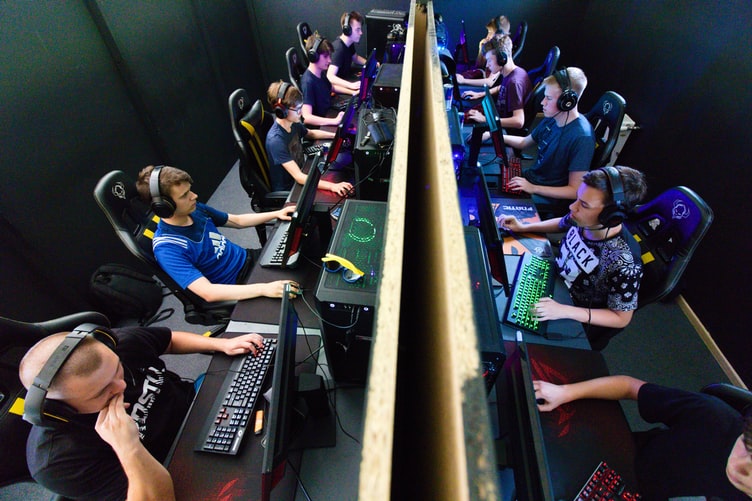Remote Capabilities Ideal for eSports Productions
HEBDEN BRIDGE, UK — With professional gamers gaining celebrity recognition and passionate audiences totaling more than 200 million worldwide, eSports is the next big wave of sports production. As eSports rises in popularity, larger, more complex tournaments and broadcasts are being produced, resulting in companies looking at more traditional broadcast solutions, such as those provided by Calrec Audio. Calrec’s high-quality audio consoles help customers – such as EA Sports, Full Sail University, OGN and more – produce and support engaging, immersive content for an industry that will continue to grow into the future.

“Mixing for eSports is dramatically different than live sports,” explains Jeri Palumbo, an A1 who has worked for many different broadcasters, covering a wide array of professional sports, including gaming. “There is a significant difference in the air-time between the two…but, live sports is also somewhat predictable, whereas eSports is like the wild west. As the A1, you are tasked with figuring out a way to collect all the audio into one source. For one recent eSports project, I had 12 layers of 32 channels on a Calrec Artemis, and I layered every single element that was in the studio. In eSports, I often do a direct out 5.1 from the Calrec, which allows me to send a 5.1 out down one path instead of having to break it out into an individual-pack stems…for me, that’s a brilliant option.”
Calrec’s range of consoles are designed to fit the requirements of any eSports event or tournament. From the smaller Brio12 to the top-of-the-range Apollo console, there is a desk for any size and complexity, with the added capability of easily expanding and networking if/when the need arises.
Calrec’s reputation for reliability, ease-of-use, customer support and build quality in the broadcast and outside broadcast world is proving very appealing to eSports companies.
When Full Sail University unveiled its $6 million, 11,000-plus-square-foot eSports arena named “The Fortress,” the school ensured it was equipped with the latest technologies and products. Included among these was Calrec’s Brio36 console outfitted with Dante I/O, MADI and Waves cards. According to Vincent Lepore, Full Sail’s director of event technical operations, “Full Sail has numerous Calrec consoles around the campus, so we were really comfortable with Calrec and what they do for a broadcast mix.”
Additionally, Riot Games has implemented Calrec’s RP1 remote broadcast mixing system and Artemis mixing consoles to create a ground-breaking workflow that overcomes the three major challenges of “at-home” production – latency, transport and control. For Riot, solutions manufacturers such as Calrec are making the necessary technologies more accessible.
“Our workflow is unique to each game,” says Matthew Donovan, broadcast engineering manager at Riot’s West L.A. production facility. “You have to know the game, the capabilities and the limitations, and be embedded with the developers to be able to visually represent that game in an engaging way for its fans. [With Calrec,] things that were more challenging are now a lot easier to accomplish.”
The Calrec Brio has also proven to be especially beneficial to eSports production for Freelance Audio Engineer Lance Gordon, co-owner of Soundcheck Technologies.
“The beauty of Calrec consoles is that they are easy to figure out, especially if you have an audio background and even more so if you have previous experience with any Calrec,” he says. “Calrec is my go-to console; I know the flow, so when something is requested, I am able to deliver it fast. Those of us in the eSports world like Calrec because we know how to use it, and how the compressors and EQ respond, so we can get more creative. I’m a big Calrec fan.”
While some broadcast consoles focus on functionality at the expense of sonic quality, Calrec has always prioritized both. “Calrec’s consoles all have a suite of broadcast-specific features to make mixing smooth and seamless,” says Dave Letson, vice president of sales, Calrec. “Automixers attenuate any number of mono inputs, allowing mic bleed and room noise to be easily controlled. Autofaders allow for GPIO triggers from vision switchers to quickly change audio sources in fast-paced, high-action eSports productions, which constantly swap between the four to 16 competitors in any given event.”
